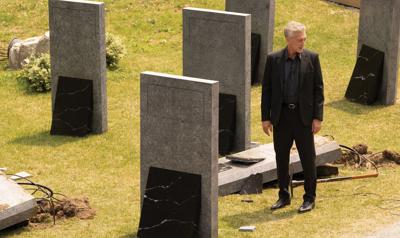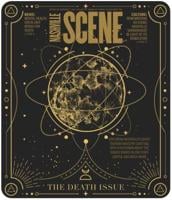When you spend a lot of time immersed in the work of a particular filmmaker, you can find yourself fitting patterns and finding through lines across decades. And it can be great, because you feel like you’re defining a commonality that allows everything to make sense according to some easily summarized plan. And it’s great if you’re writing a book or preparing a lecture, or getting a class in order to share with others — like giving a skeleton key to someone moving into a manor filled with secrets and histories. Because now they have a way to get into this whole new sprawling thing with a sensible foundation.
Really, most beloved Canadian David Cronenberg has made that an easy thing to do. He’s got themes and archetypes going all the way back 60 years ago. He has renegade scientists, Byzantine factions and counterfactions embroiled in secret battles just beyond curtains and eyelids, a realist sense of the human body and what it is capable of in all manner of situations, and the tragedies that ensue when someone realizes there isn’t anything beyond this life.
While it isn’t as if you can take those recurrences and use them to solve his films — or develop a body-horror Mad Libs — over time there can be something comforting about figuring out how the latest Cronenberg film is exploring, developing and reworking these elements. Which is why, with the writer-director in his 80s, his new film The Shrouds feels so unexpected. This is a film that feels aware of all the books and lectures and the thematic heft of a body of work devoted to exploring these elements, and as such unfurls its tendrils into new and unexpected thematic spaces.
Karsh (Vincent Cassel of Eastern Promises and Irréversible) is an entrepreneur, tech innovator and emotional searcher, still reeling from the death of his wife of many years. He has envisioned a whole new means of grieving, wherein thanks to subterranean cameras and biomimetic fabrics, people can visually interact with the decay of their loved ones’ bodies as they rot and return to the earth.
Just reading that, you probably have a very strong reaction — one way or the other — as to how such a concept affects you. And this is a David Cronenberg film we’re talking about, so there’s room for Byronic Romantics, religious sticklers, fatalist gorehounds and militants of various ideological bents to wallow around in the process. Regardless of where the ride of The Shrouds takes you and lets you out, this film flips all manner of switches in the subconscious and does not immediately vacate the premises. (In the six months since I first saw it at last year’s New York Film Festival, not a day has gone by without it occupying prime psychic real estate.)
We aren’t just talking about the very private act of grief (and the even more private act of decomposition). Especially given the rise of large language model AI systems, every person watching this film understands that nothing done online operates in a truly closed system. And then the other questions start to surface. How do you maintain security for anything anymore? Before you know it, we’ve got multinational trade incursions, double and triple agents in abundance, conspiracies both vast and single-person-oriented, and sincere moments of emotional honesty that can only be expressed through kinky sex. (There’s a moment that feels like it’s having a specific dialogue with Cronenberg’s 1996 film Crash — itself the greatest film of the late-20th century — that hits so hard I started weeping profusely.) There are also real questions about to what extent the body defines itself by presence and absence. (Real talk: Is that which is removed or amputated still part of the self?) And if by chance you’re wondering if the film aims to engage with AI, it sure does, both as a digital organism that consumes information and adapts accordingly as well as a means of tricking seekers of convenience into handing over the keys to the world-destroyer.
I don’t know how to tell you how to feel about The Shrouds, because I honestly still don’t know how I completely feel about it. There are absolutes, sure. Guy Pearce, as tech attaché/confidant Maury, is the kind of wormy guy who thrives in films like this. When things get up and running, things go full Videodrome as far as feeling so trapped in the path of a tsunami of business intrigue that you just have to hunker down in gorgeous chrome and sleek surfaces until you can catch your breath. As a casual shout-out to Dead Ringers characters the Mantle twins (from both the 1988 and 2023 editions), Diane Kruger incarnates both Karsh’s late wife and her twin sister. At this point, as a viewer, things feel as if they are barreling out of control.
That said, it never feels like Cronenberg doesn’t know exactly what’s happening. He has this habit of making films that the world rapidly, metastatically evolves in order to catch up to (please see 2012’s Cosmopolis and then have a cocktail because you will need it), and the heightened, enigmatic ending we get here feels like a peek into a future chaos we don’t even have words for yet. As always, there’s no one else in the game like David Cronenberg. And with the recent death of David Lynch, it is imperative that we keep this Canadian prophet of progressive disease and minister of mind-body duality alive and making more films.





